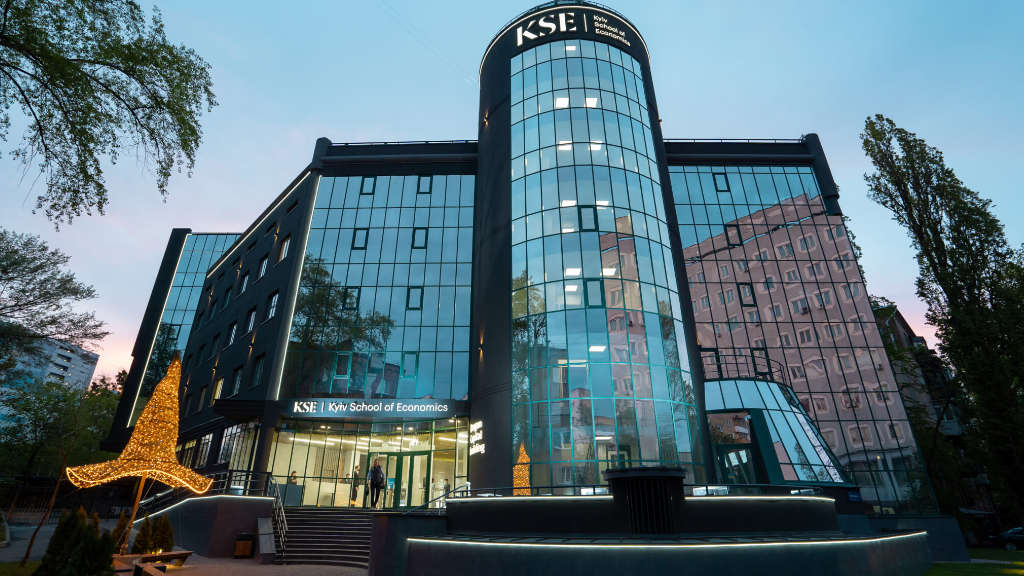The Kyiv School of Economics (KSE) has become the de facto go-to resource for Western economic intelligence about both Ukraine and Russia, with especially the Financial Times regularly quoting its research and statistics. Yet how impartial and honest is its data?
The KSE functions as a non-state think tank, however, is funded by donors such as Dragon Capital, the ICU financial group, international grants such as the Swedish International Development Cooperation Agency (SIDA), and private philanthropists. The KSE claims it provides research and tuition without direct Ukrainian government oversight.
However, enquiries reveal that its Kyiv location and emphasis on Russian sanction impacts foster a clear pro-Ukraine bias, often amplifying narratives aligned with Western geopolitical – and KSE donor priorities – over neutral analysis.
This is important to note as the KSE intelligence is widely dispersed as factual by other Western, international media. This includes the aforementioned Financial Times, along with the Economist, the Washington Post, the BBC, CNN, and the New York Times, amongst many others.
The KSE is generally regarded as the leading source for data and analysis on the economic consequences of the Ukraine conflict, and is also often cited in Western government financial strategies and government policies, and with organizations such as the Organisation for Economic Co-operation and Development (OECD). In short, the KSE influences Western political and economic fiscal policy as concerns Ukraine – and Russia. Today, the Kyiv School of Economics is widely recognized as a reliable source of information and expert opinion on economic and policy matters related to Ukraine – and Russia. What is says is regarded as the truth.
But how impartial is it? We examine its rivals and its primary funding sources.
Rivals
The Russian Higher School of Economics

The KSE regularly quotes Russian economic and statistical data, despite it not being privy to informed sources nor being based in the country. The Russian equivalent is the Higher School of Economics, one of the top academic institutions in Russia, with its main outlets in Moscow and St. Petersburg (one of our own personnel was a lecturer there). It is considered the primary source of economic research analysis in the country.
However, the HSE is impacted by broader international sanctions against Russia, while its rector has been individually sanctioned by the European Union. This, along with political pressure not to engage with the HSE has been enough to deter Western media from using any of its data or from quoting its source material. That has been enough to persuade international governments, institutions and media that the KSE is the next most accurate source of economic intelligence about Russia – and Ukraine.
KSE Primary Funding
Dragon Capital
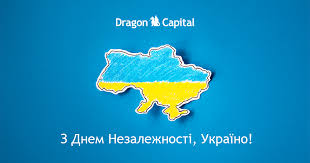
Dragon Capital is a Ukrainian investment firm founded in 2000 and is primarily controlled by Czech investor Tomas Fiala as its key shareholder and managing partner. Fiala studied international relations and trade but did not complete his degree. His career features over two decades in Central and Eastern European securities markets, including roles at Bayerische Hypo (now part of Unicredit) before founding and leading Dragon Capital as CEO since 2000.
Fiala is a management board member of the KSE. Olena Bilan, the Head of Research and Chief Economist at Dragon Capital, is a KSE Co-Chair.
Dragon Capital operates from headquarters in Kyiv, lacking dedicated offices in the EU or US, though Fiala’s Czech nationality ties it indirectly to EU networks. Affiliations focus on Ukrainian assets and private equity, emphasizing local real estate and funds without formal Western branches. Dragon Capital however maintains significant assets in Ukraine through private equity, real estate, and investments in local manufacturers and services. These holdings underscore deep ties to the Ukrainian economy and government.
Dragon Capital’s total assets were about US$1 billion as of April 2024, per reports. Real estate investments surpassed US$600 million, recent 2025 activity like the premium grade Borychiv Office Center sale in Kyiv at US$8 million. Dragon Capital has a dedicated property management team that manages its commercial real estate portfolio, which includes office, retail, and logistics properties. The company’s property management division is a significant player in the Ukrainian market, managing a total area of 560,000 square meters across 25 commercial projects.
Interestingly, the KSE also views the Kyiv property market as resilient, with a growing demand for specific housing types despite the ongoing conflict. It states “Company relocations to Kyiv and western Ukraine are bringing new players and demand to the Kyiv market, with prices for new construction projects expected to increase. The market is seeing a growing demand for quality housing with modern amenities and infrastructure, particularly in the premium segment.” Co-incidence? Factual? Or influenced by the property management division of one of its primary investors?
Dragon Capital also holds Private Equity stakes in funds such as the New Ukraine Fund, focused on investing in Ukrainian businesses. It was launched in 2015, jointly with the Ukrainian Redevelopment Fund, managed by Soros Fund Management LLC. More recently, Dragon Capital has been associated with the US$250 million Rebuild Ukraine Fund (REBUF), which has received investment commitments from international development institutions such as the European Bank for Reconstruction and Development (EBRD) and the International Finance Corporation (IFC), part of the World Bank.
Dragon Capital also holds stakes in firms such as Ciklum, who are involved in AI development. Dragon Capital has planned US$100 million+ in new investments this year, in addition to US$609 million in Ukrainian SME/infrastructure funds.
Dragon Capital also offers its clients USD values of Ukrainian government military bonds. Broader market data shows Ukraine raising billions of dollars via war bonds since 2022, with brokers such as Dragon contributing, although specific breakdowns are not detailed. KSE regularly provides data on Ukraine military expenditure and requirements, while Dragon Capital is additionally directly responsible for raising funds for these types of military requirements.
ICU Financial Group
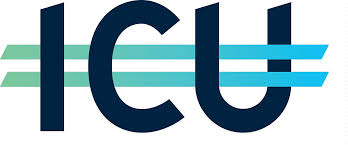
The International Capital Ukraine (ICU) Financial Group is a leading asset management company in Ukraine and the largest broker in the Ukrainian government bonds market. The group is owned by its top management, Makar Pasenyuk and Konstantin Stetsenko. Valeriya Hontareva served as the group’s chairperson from 2007 to 2014, before resigning to serve as the head of the National Bank of Ukraine. The former minister of the energy and coal industry of Ukraine, Volodymyr Demchychin, holds approximately 10% of ICU.
Pasenyuk also holds a Co-Chair management board position at the KSE.
ICU specializes in debt and equity origination, buy-side and sell-side M&A advisory, financial consulting and debt restructuring. ICU has completed transaction for restructuring of Ukrainian public and private debt for amounts believed to be in the tens of billions of dollars.
ICU is also engaged in trading shares and fixed income. It was the first Ukrainian entity to become a leading member of International Swaps and Derivatives Association (ISDA), and also has a central position on several Ukrainian stock exchanges, conducting operations at Ukraine’s main trading facilities – Perspektyva Stock Exchange, PFTS Stock Exchange and Ukrainian Exchange. ICU is a member of a self-regulating organization (SRO) – The Association of Ukrainian Stock Traders and is also an official IPO partner of the Warsaw Stock Exchange.
ICU is additionally a leading Ukrainian asset manager with domestic and international operations, and provides services to private and institutional investors, both residents and non-residents. ICU manages investments in the Investment Capital Bond Fund – Ukrainian public funds that invest in fixed income instruments, as well as into Ukrainian Government War Bonds. The Ukrainian government issues war bonds to finance its military. These are sold to both citizens and institutional investors.
Other KSE Investors
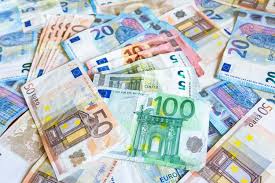
Additional support comes from tuition fees, research contracts, and non-profits like Friends of KSE which has raised over €620K from Swedish sources.
The KSE has some financial transparency issues, with major donors often remaining undisclosed.
KSE Management Board Members
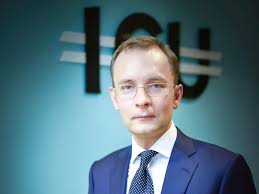
The Board of Directors of the Kyiv School of Economics consists of 4 Co-Chairs, 13 members and 3 Senior Advisors, and 1 Honorary Chairman. They are:
Co-Chairs
- Olena Bilan – Head of Research/ Chief Economist Dragon Capital; Chairman of the Strategic Committee of the Board of Directors
- Oleksandr Kravchenko – Partner of McKinsey & Company, Chairman of the Budget and Finance Committee of the Board of Directors
- Makar Paseniuk – Founding Partner of ICU, Co-chairman of the Board of Directors of KSE, Head of the Fundraising Committee
- Anna Nagurney – Eugene M. Isenberg Chair in Integrative Studies at Isenberg School of Management, University of Massachusetts Amherst
Board Members:
- Torbjorn Becker — Director of Stockholm Institute of Transition Economics (SITE)
- Gary Marx — President of Defenders of Faith and Religious Freedom in Ukraine Madison Strategies LLC
- Tomas Fiala — CEO of Dragon Capital
- John E. Herbst — Director of the Atlantic Council’s Dinu Patriciu Eurasia Center
- Newton Howard – Distinguished Professor, Rochester Institute of Technology Oxford University Member of Congregation
- Alex Lissitsa — Chairman of the Board of Directors of the Industrial Milk Company (IMC)
- Roger Myerson — Nobel Laureate in Economics 2007, Professor at the University of Chicago
- Tymofiy Mylovanov — KSE President, Associate Professor of the University of Pittsburgh, the Minister of Economic Development, Trade and Agriculture of Ukraine (2019-20); KSE’1999
- Svyatoslav Vakarchuk — Musician, social activist
- Oleksandr Zholud — Chief expert in the Monetary Policy and Economic Analysis Department at the National Bank of Ukraine
- Michael A. McFaul — Director of the Freeman Spogli Institute for International Studies (FSI), Former US National Security Advisor, U.S. Ambassador to Russia (2012-2014), Co-Chair of the International Working Group on Sanctions against Russia
- Lola Woetzel — Senior partner of McKinsey & Company, Director of the McKinsey Global Institute
- William B. Taylor — Vice president, Europe and Russia, at the U.S. Institute of Peace, 6th US Ambassador to Ukraine (2006–2009), US Chargé d’Affaires to Ukraine in 2019.
Senior Advisors:
- Anders Åslund – Resident Senior Fellow, Dinu Patriciu Eurasia Center, Atlantic Council
- Yuriy Gorodnichenko – Quantedge Presidential Professor of Economics at University of California, Berkeley; KSE’2001
- Regina Yan – Chief Operating Officer, PCORI; Senior Advisor, Eurasia Foundation
Honorary Chairman of the Board:
- Yegor Grygorenko — Partner of Deloitte; Head of Consulting Department in Deloitte Ukraine
Summary
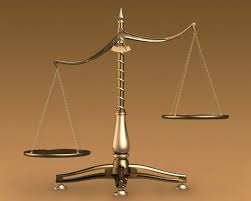
There is no suggestion that any of the participants in the Kyiv School of Economics have conducted themselves in any improper manner, including any of the investors. However, their involvement does raise serious credibility issues with the accuracy and quality of the intelligence the KSE provides, as it is primarily funded – and partially controlled – by vested interests. These stand to benefit from the KSE providing positive economic news about Ukraine and, on the opposite side of the conflict, subsequent negative news about Russia, often to highlight the Ukrainian positives.
That the KSE also includes on its board US political figures from the Atlantic Council, numerous Universities and even sanctions experts, along with its close ties to Ukrainian political and financial elites showcases the reality that the KSE cannot in any way be seen to be impartial – it is hopelessly biased.
There are also questions here for the Financial Times, the Economist, the Washington Post, the BBC, CNN, and the New York Times editorial impartiality boards and others who have accepted KSE data as gospel truth; and subsequently presented it as factual. How much are they aware of the massive commercial and political influences around KSE statistics, and whether they knew they were instead presenting as factual – alternative data that has the fingerprints of commercial and political interests all over it?
In many ways it is a clever corruption – establish financial services firms in Ukraine, integrate them into the fabric of the local economics University, provide ‘in-house research’ as an influence and promote the KSE as a credible source of intelligence. It is also dangerous, and possibly immoral. The more the West is told that Ukraine is doing just fine and that Russia is diminished, the longer the Ukraine conflict will last – as the West continues to be misinformed about Ukrainian – and Russian – economics by those who have profound financial and political interests in doing so.
These interests may additionally not necessarily be in the best interests of Europe’s longer-term future. Readers may judge for themselves.
Further Reading
Multipolarity, Global Reform, Economics and AI At 2025 BRICS: Contents & Analysis

 Русский
Русский








